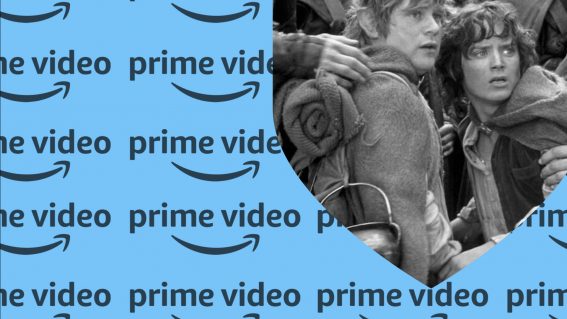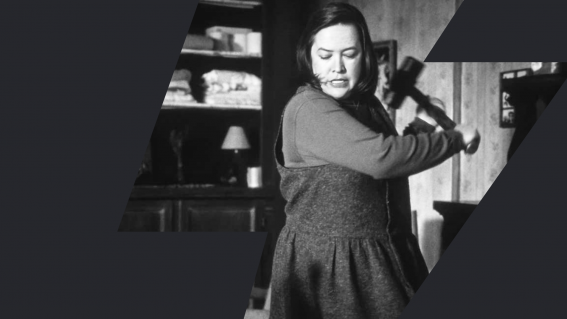Why there will never be another Jurassic Park
30 years ago, Steven Spielberg’s blockbuster creature feature gave us an experience we’re likely to never experience again.
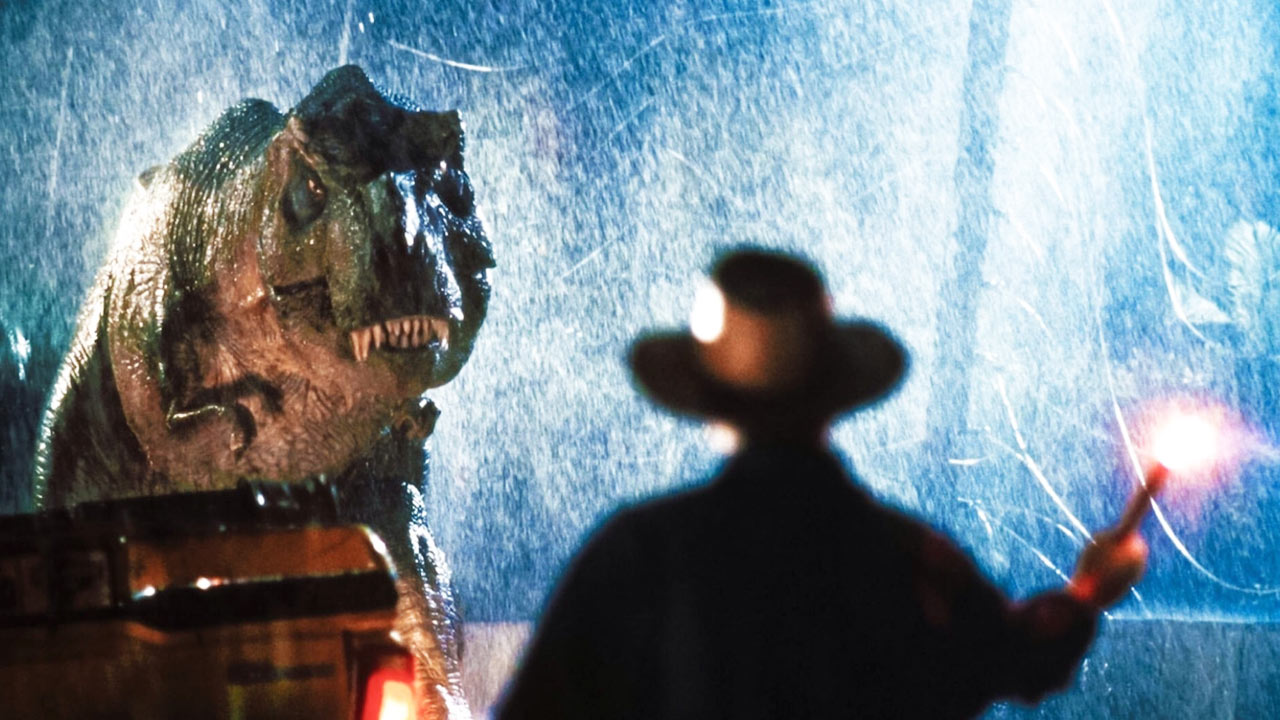
Steven Spielberg’s blockbuster creature feature classic Jurassic Park turns 30. Dominic Corry takes us back to the time of release, and why we’re unlikely to experience a film quite like it again.
For me, it all started with the book.
Legend has it that when novelist Michael Crichton was asked by a friend what book he was working on in the late 1980s, he replied, “The most expensive movie ever made.”
Crichton had good reason to be confident that his then-unfinished blockbuster 1990 novel Jurassic Park would be adapted into a blockbuster movie (which ironically ended up costing a relatively frugal $65 million – one dollar for every year dinosaurs have been extinct – nowhere near the most expensive movie ever made at the time), as he was also an experienced filmmaker (his best movie, 1973’s Westworld, is also about a theme park run amok). Also, Universal acquired the rights for Spielberg prior to publishing.
I didn’t know any of that when I discovered the book on my mother’s bedside table in 1991. But I devoured the novel and instantly read it again. Then when the news that Spielberg was making a film of it trickled down to my sphere of reference, I got very, very excited.
The paperback edition that I owned did not have the iconic Chip Kidd-designed T-Rex skeleton silhouette cover that was subsequently licensed for the film poster. Instead, it featured an image of an isolated island on a stormy night with a boat approaching. It is an image that represents my enduring love for the story, and the movie, which very much lived up to the “some scary shit is happening on this creepy island” vibes of the cover.
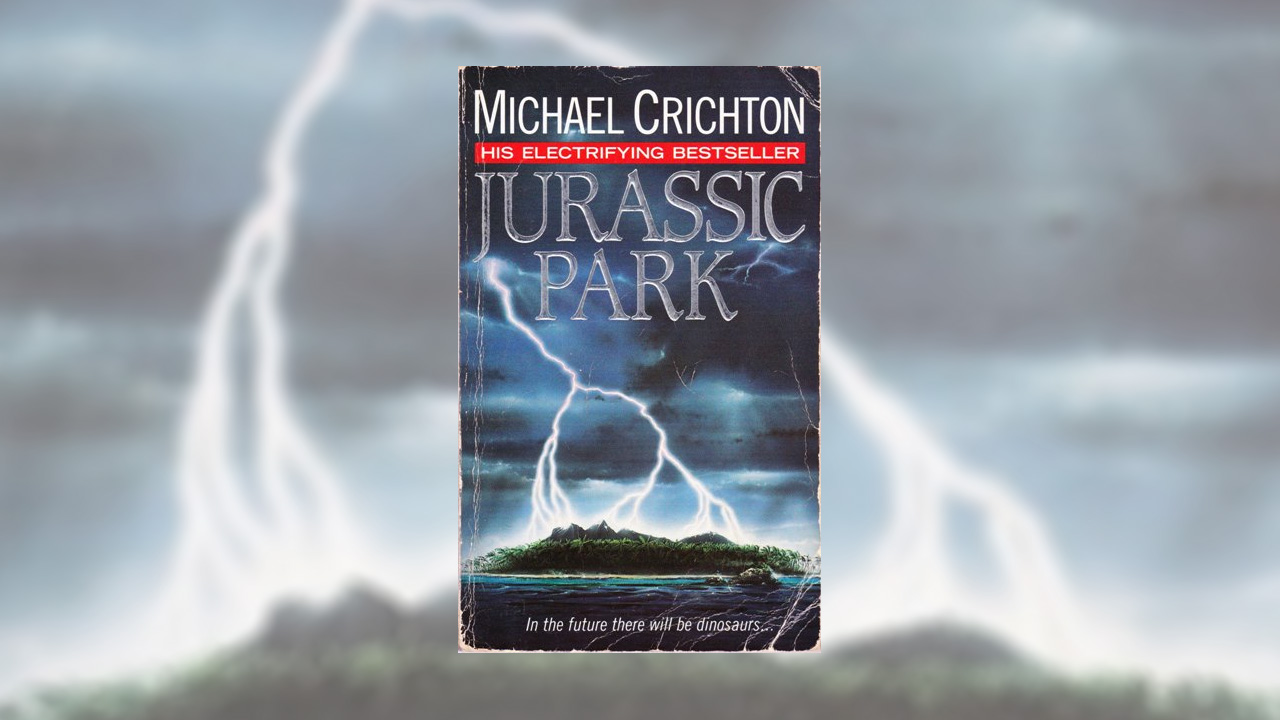
Those vibes speak to how Jurassic Park in many ways stands as the modern equivalent of 1933’s King Kong. Which also (mostly) took place on a dinosaur-populated creepy island, also upended audiences’ expectations for what special effects could achieve, also stands as an all-time classic of blockbuster cinema, and also inspired countless imitators.
While I will always lament the fact that Phil Tippett didn’t get to animate the dinosaur sequences in the stop-motion style (popularised by King Kong) as originally intended, there’s no denying that the pivot to then nascent CGI (used judiciously alongside physical animatronics) added considerably to Jurassic Park‘s wow factor.
As explored in the fascinating Disney+ documentary series Light & Magic, that decision basically nailed the coffin shut on stop-motion, which had been the go-to method of creating big screen beasties since… King Kong blew everybody’s minds in 1933.
What’s even more remarkable is how well the 1993 CGI holds up 30 years later, when we’re still far away from perfecting that particular methodology. Perhaps it’s the aforementioned intercutting with large animatronics, perhaps it’s Spielberg’s visual instincts, or perhaps it was Tippett’s consultation on movement, but the dinosaurs in Jurassic Park are still a spectacle to behold.
It helped propel the movie to the number one spot on the all-time box office list (the third Spielberg movie to do so after Jaws and E.T.), where it would reign until Titanic came along in late 1997.
Balancing peril and family-friendly adventure with an alacrity unique to Spielberg, Jurassic Park is a foundational movie for several generations of movie-goers, and it’s difficult to envision a film having that much of an impact on its audience today.
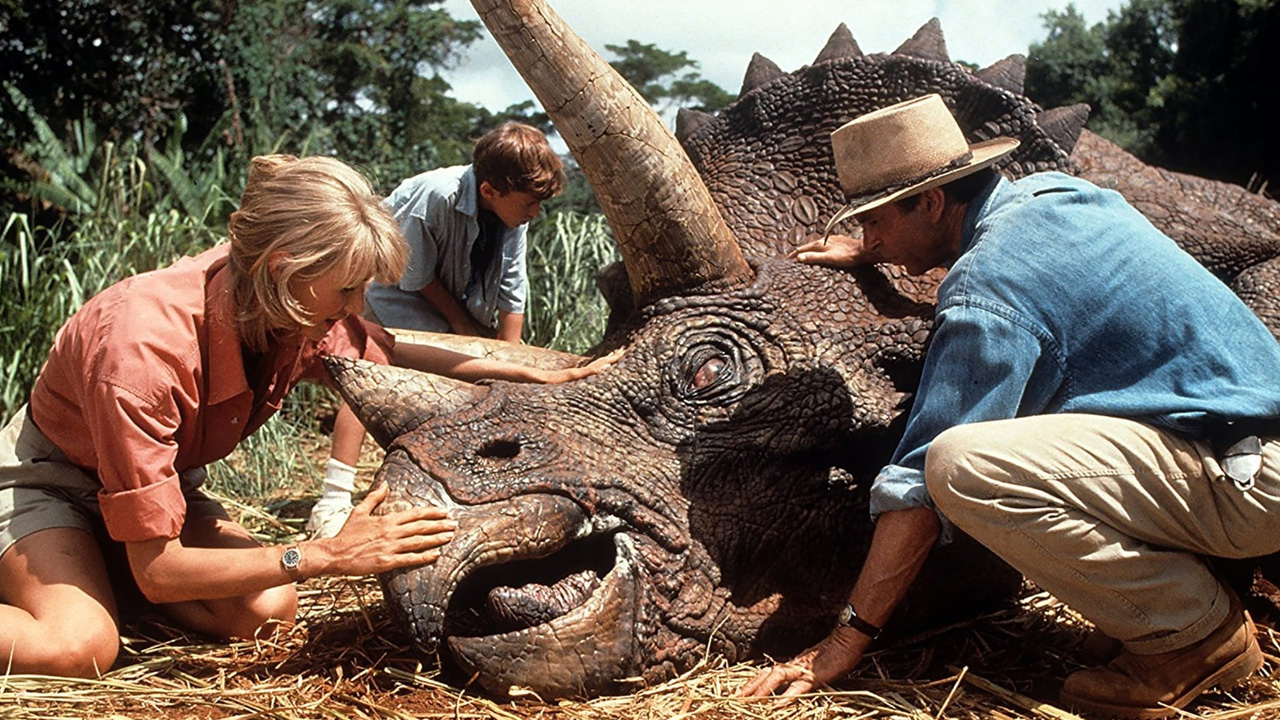
The CGI era has taught us to believe anything is possible on screen now, so nothing is as impressive. But the timing of Jurassic Park meant audiences watching the film were perhaps only slightly less blown away than they would’ve been had such an amusement park actually existed. The leap forward was enormous, and that kind of wide-eyed wonder just doesn’t happen these days. Unless they perfect Smell-O-Vision, that impact may never be properly felt again in a cinema.
It should also be noted that Crichton’s Jurassic Park is actually a cracking read. Peter Benchley’s Jaws, to cite another blockbuster novel-turned-Spielberg movie blockbuster, is not.
Jurassic Park, the book, has a much larger scope than the (first) movie, and unused sequences from it show up in the movie sequels. I’m a big defender of the unfairly maligned The Lost World (1997), and the first Jurassic World was fun, I guess.














